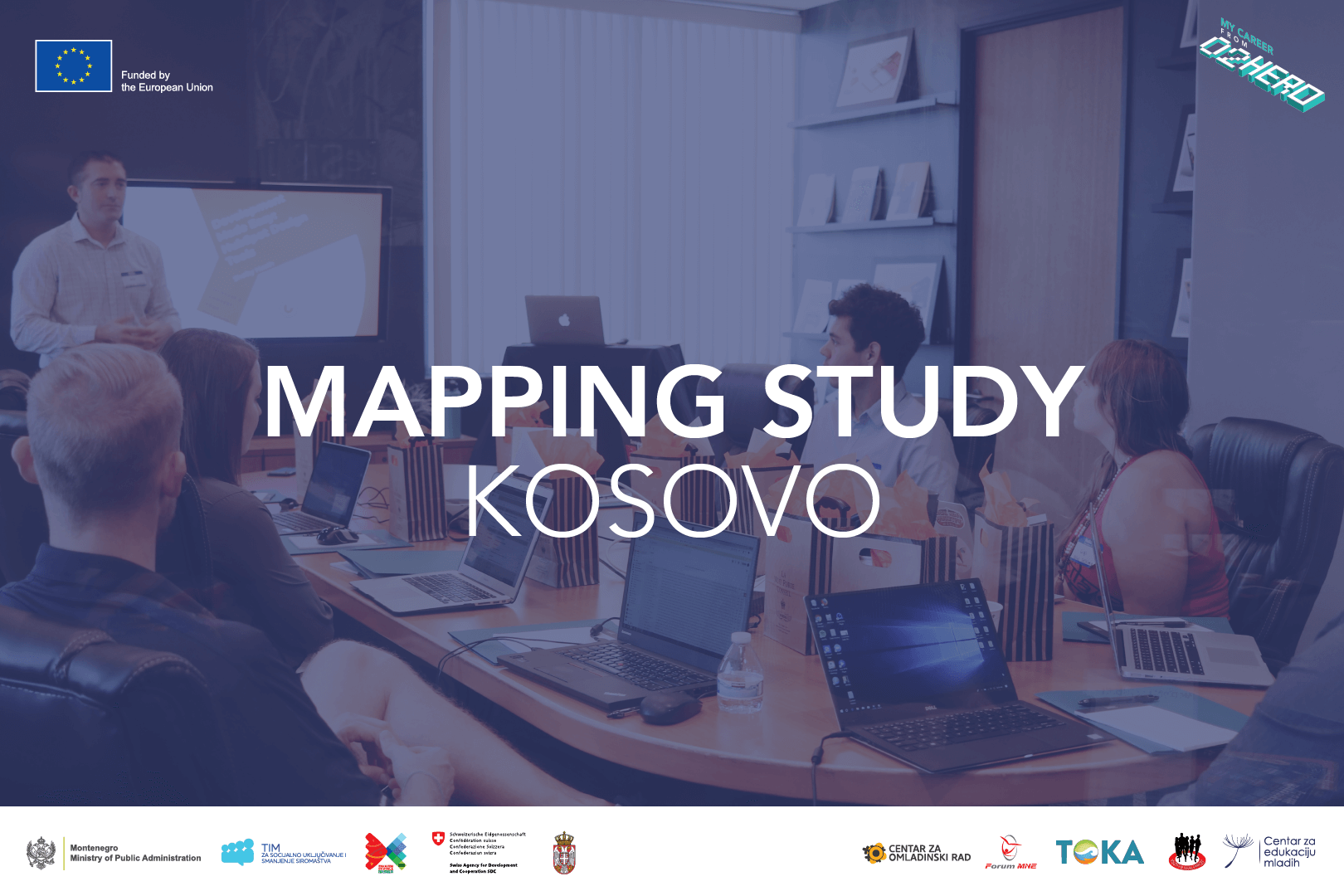Basis for the Research
The Information and Communication Technology (ICT) sector is one of the fastest growing sectors in Western Balkan countries. This tremendous growth is increasingly visible within the Republic of Kosovo. Additionally, the ICT sector in Kosovo is one of the most developed and most promising sectors for generating economic growth. However, the sector encounters a shortage of skilled workforce due to lack of soft skills and practical experience.
The Next Generation Networks (NGN) Institute conducted a mapping study to identify the gaps of NEET population (youth not in education, training, or employment) according to Information and Technology (IT) and Small Medium Enterprises (SME) organizations, Civil Society Organizations (CSOs), and Governmental Institutions. The study serves as a baseline for developing one-stop-shop youth employability model to provide the Kosovar youth with job skills and competencies for any future employment opportunities locally and internationally in the ICT sector. The model includes trainings for entrepreneurship, career counselling, and digital skills.
Moreover, the study conducted both qualitative and quantitative research and the data presented are obtained from:
- 30 IT and SME organizations,
- 101 individuals from NEET population,
- 23 CSOs, and
- 5 Governmental Institutions and/or Representatives.
The respondents were randomly selected and the responses were collected using Computer Assisted Personal Interviewing Method (CAPI).
Main Findings
The Section I of the study, that is, Employability and Employment Opportunities, shows that 84% of IT and SME organizations in Kosovo expect to hire people in the next twelve months. 73% of the IT and SME organizations offer fixed-term employment, out of which 43% of them offer short-term work contracts and 30% offer long-term work contracts. And, 4% of them offer Internship programs with the possibility of getting a full-time job. The greatest difficulties faced by IT and SME organizations while recruiting young professionals are: desire for higher salaries, lack of desired skills, and lack of experience. Moreover, the study shows that the NEET population constantly applies for jobs. The top three most used methods for seeking employment are: job portals, social media sites, friends and family, and their self-initiative. Regarding engagement of CSOs in projects with the NEET population, the findings show that CSOs engage mainly in training and mentorships followed by advocacy.
Section II of the study, that is, Formal Education and Non-Formal Education, analyzes what the NEET population studies in relation to digitalization throughout their education system. Findings show that it is necessary to combine the education system with professional studies. The study also shows that 56,4% of the NEET population have never been exposed to the latest technological advancements in Industry 4.0. And, this limited exposure comes from old literature (64.4%), lack of research laboratories (53.5%) and incompetent academic staff (51.5%).
Section III of the study analyzes the required skills and the acquired skills in the ICT sector. Findings show that IT and SME organizations would hire someone who has basic skills such as, time management, Microsoft office, social media, and basic computer skills. On the other hand, in regard to programming skills, IT and SME organizations notice an increase in the need for a workforce with knowledge of HTML/CSS, followed by JavaScript, Node.js/Angular.js, and PH/PHPoC. Entrepreneurial skills are considered to be useful skills according to IT and SME organizations. Findings show that IT and SME organizations demonstrate the need for soft skills such as, critical thinking, problem solving, and emotional intelligence. When it comes to hiring employees, according to IT and SME organizations, work experience is extremely important. On the other hand, critical thinking, presentation skills, and problem-solving skills show to be the top three soft skills NEET population want to learn for future employment opportunities. Moreover, according to IT and SME organizations, the study shows that professional training is a necessary requirement for the NEET population to be employed.
Lastly, section IV examines the participation of IT and SME organizations, NEET population, and CSOs in training programs. Findings show that IT and SME organizations and the NEET population participated in different training programs. The study also shows that CSOs are willing to participate in any programs in order to improve NEET population’s skills for future employability purposes in the ICT sector. Some of the CSOs said they are willing to also offer unpaid internships for NEET population. Increasing the number of employees by CSOs as well as providing more training programs seem to be the most important factors to improve the capacity of CSOs for youth employment activities. Moreover, the study shows that there is a collaboration between government officials and CSOs.
Recommendations:
- IT and SME organizations showed willingness to hire in the next twelve months. The NEET population is very interested in attending training programs. However, IT and SME organizations need to be able to offer paid internships besides only full-time jobs.
- Assistance should be provided to support IT and SME organizations in building infrastructure for industry 4.0 and digitalization. And, literature in schools must be updated as per the latest technological advancements in ICT sector.
- CSOs must engage more in advocacy and youth employment training programs in regard to ICT sector.
- The NEET population needs guidance in choosing the most appropriate training program for themselves.
- Advocacy actions need to be developed to change the perception of the NEET population. They think that training is the most important factor for future employment, while, on the other hand, IT and SME organizations actually consider work experience as the most important factor for future employment.

